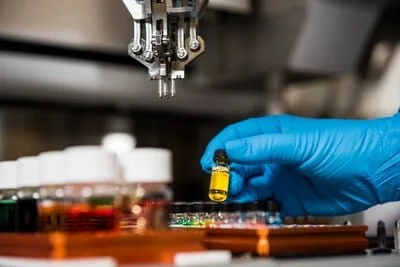Biorepositories– The Most Valued Resource of Modern Research
What is a Biorepository or Biobank?
The standard definition is a place that collects, stores, and distributes biospecimens to requested designations for research purposes. The truth is that most biorepositories serve a much greater field of services than what meets the eye. In scientific circles, they are a valuable asset to laboratory research and over 120 biobanks that are used worldwide. Biorepositories are so valued in fact, Time Magazine published an article citing that biobanks are among ten of the ideas slated to change the world. (1) (2)
The Primary Function of a Biorepository
The main functional component of the biorepository is to house various biologics. The types of specimens stored include blood, urine, tissue, stool, and not limited to human specimens, but can also be animal. Most of the human specimens have medical data stored in conjunction with them and are cataloged for future use. These biologic samples can be designated for private or public project partners such as vaccine manufacturers, regulatory agencies, molecular diagnostic companies, and oncologic research endeavors. (3)
Regulatory and Privacy Concerns
Biorepositories are not without a set of checks and balances. They aren’t allowed to operate under a set of closeted rules that can potentially interrupt public safety. It is important to note that biospecimens contained within a cGMP certified biorepository are under strict regulation from the government and they are required to adhere to the rules and certification standards that apply. The role of bioinformatics within the industry assists to regulate the flow of information as it applies to the large libraries of cataloged specimens. There is an ever-increasing burden to encrypt biospecimen collections with sophisticated security measures that protect patient privacy and also ensure accessibility. (4) (5)
Supporting the Demand of Special Research Projects
One of the main functions is housing large volumes of biologics. Biospecimens are considered precious to the world of drug discovery and development. Genetic material helps to develop novel breakthroughs in the world of advanced disease and, as such, are in high demand many clinical studies are the world. The number of registered clinical trials has increased significantly in recent years. As of August 2019, there were about 314,644 thousand clinical studies registered globally. (4) (5) (7)
Quality Control
Capable of digitally managing the characterization of specific cultures, tissue types, and fluids, biorepositories are one of the most reliable sources for obtaining viable laboratory study mediums. Viability being the optimal word- maintaining the integrity of the specimen is paramount. Laboratory professionals run a tightly wound operation that oversees the maintenance of these biospecimens to help reduce errors in testing and quality. Management includes the complexities of the freeze-thaw cycles and understands how to effectively minimize contamination. The goal is to produce reproducible efficacy in a clinical test sample. The biorepository is essentially the most important element of transition between the harvest point of the biospecimen and the clinical endpoint of the intended study. (7) (8)
Diverse Range of Services
Cell and Tissue Banking
Peripheral blood serum/plasma/mononuclear cells (PBMC)
Lamina propria mononuclear cells (LPMC)
Bone marrow cells/plasma
Lymph nodes
Human stool and isolated stool bacteria communities
Buccal swabs (Human mouth epithelial cells for DNA purposes)
Tumor Tissue
Pleural Fluid
Thymocytes
Splenocytes
Bronchoalveolar lavage fluid
Extracted DNA
FFPE/Frozen Tissues
Laboratory Services
Laser capture microdissection
Tissue microarray construction
IHC preparation
RNA, DNA isolation
Digital Imaging
FFPE or Frozen tissue preparations
Custom microarray construction
CRO Services
They offer clinical monitoring services such as acting as a site monitor for clinical research projects, develop customized SOP’s, or consult on special clinical investigations or investigational drug protocols.
CTM Logistics
They specialize in arranging temperature-controlled delivery of biological samples and overseeing the collection, retrieval, and extraction processes.
Modernizations in Biorepository Management
Even with the diverse range of services and capabilities of biorepositories such as Geneticist, in a modern technological landscape, more streamlining is required. We can look forward to the continued contributions in the form of better specimen traceability and management. As the growing amount of unique requests are needed with respect to creating customized arrays, the industry recognizes being able to highlight the unique origins and characterizations via small digitized footprints that are easily shared among genomic professionals.
Modern laboratory science not only depends upon quality controls in the lab but also cloud-based sophisticated inventory management that pairs nicely with tracking and easy sharing. The adoption of a changing landscape is reflected in modern biorepository spaces. Many are equipped with high functioning, lighting quick lab computing interfaces with respects to temperature controls, biodata, easy accessibility, and permission controls, and ability to share with other biobanks or LIMS systems. (9) (11) (12)
References and Further Reading
1. [Online] http://content.time.com/time/specials/packages/article/0,28804,1884779_1884782_1884766,00.html.
2. [Online] https://www.ispecimen.com/blog/2018-will-big-year-biobanks/.
3. [Online] https://www.ncbi.nlm.nih.gov/pmc/articles/PMC6132819/.
4. [Online] https://www.ncbi.nlm.nih.gov/pmc/articles/PMC3038212/.
5. [Online] https://cancerworld.net/impact-factor/biorepositories-for-cancer-research-in-developing-countries/.
6. [Online] https://www.statista.com/statistics/732997/number-of-registered-clinical-studies-worldwide/.
7. [Online] https://www.ncbi.nlm.nih.gov/pubmed/26420610.
8. [Online] https://www.ncbi.nlm.nih.gov/pubmed/21745162.
9. [Online] https://www.ncbi.nlm.nih.gov/pubmed/1367056.
10. [Online] https://www.ncbi.nlm.nih.gov/pmc/articles/PMC6132819/.
11. [Online] https://www.ncbi.nlm.nih.gov/pubmed/26514206.
12. [Online] https://www.ncbi.nlm.nih.gov/pubmed/26418270.


